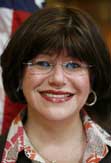Proponents of the state-forced charter school constitutional amendment
 on the November ballot have a
website
that is full of bait and switch.
Most of it is about what they claim are the benefits of charter schools.
But that’s not what the referendum is about.
Local school boards can already authorize charter schools,
and many of them have.
The referendum would change the Georgia Constitution to authorize
an appointed state board to force charter schools on local elected school
boards that don’t want them,
granting more money per student than in public schools,
with
the difference to be made up from local property and sales taxes.
The most substantive thing I have found on the proponents’ website
says that last is not so, but unconvincingly.
on the November ballot have a
website
that is full of bait and switch.
Most of it is about what they claim are the benefits of charter schools.
But that’s not what the referendum is about.
Local school boards can already authorize charter schools,
and many of them have.
The referendum would change the Georgia Constitution to authorize
an appointed state board to force charter schools on local elected school
boards that don’t want them,
granting more money per student than in public schools,
with
the difference to be made up from local property and sales taxes.
The most substantive thing I have found on the proponents’ website
says that last is not so, but unconvincingly.
Tony Roberts, President of Georgia Charter Schools Association wrote to All Charter School Leaders and Board Members 7 August 2012, Response to Letter from Herb Garrett of Georgia Superintendents Association,
One final, but important point, local school superintendents and board members were adamantly against any local dollars going to charter schools that were denied by a local school board. The final version of HB 797 was negotiated to ensure that was the case — the language is written right there into the law. So, to recap, they insist on no local money going to state-approved charters, and then get upset about the state money going to charters.
Curiously, he doesn’t cite that purported language. The closest thing I can find in HB 797 is a paragraph I already quoted:
Continue reading




















